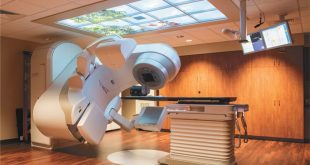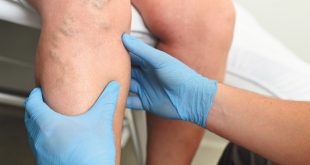By Sergio Martinez, DO, AOA, AOAO
 Traveling can be an exciting and enriching experience, but it requires careful planning and consideration, especially for individuals who have undergone total knee and hip replacements. While traveling can be beneficial for post-operative recovery and mental well-being, it is essential to prioritize safety, comfort, and proper care to ensure a smooth journey. In this article, we will explore important tips and considerations for those traveling after total knee and hip replacements.
Traveling can be an exciting and enriching experience, but it requires careful planning and consideration, especially for individuals who have undergone total knee and hip replacements. While traveling can be beneficial for post-operative recovery and mental well-being, it is essential to prioritize safety, comfort, and proper care to ensure a smooth journey. In this article, we will explore important tips and considerations for those traveling after total knee and hip replacements.
1. Consult Your Healthcare Professional
Before embarking on any travel plans, it is crucial to consult your healthcare professional, particularly the surgeon or orthopedic specialist who performed your knee or hip replacement. They can assess your current health status and determine if you are fit for travel. They may also offer valuable advice and precautions to take during your journey.
2. Choose the Right Destination
When planning a trip after joint replacement surgery, consider the destination carefully. Opt for locations with easy accessibility, good infrastructure, and adequate medical facilities nearby. Smooth and even terrains, mild climates, and moderate physical activities should be prioritized to reduce strain on your replaced joints.
3. Plan Your Journey Ahead
Careful planning is essential to ensure a comfortable and stress-free trip. Book direct flights whenever possible to minimize the time spent walking or navigating airports. Request wheelchair assistance if needed and pre-arrange ground transportation at your destination to avoid unnecessary strain on your knees and hips.
4. Pack Wisely
Pack light to avoid overburdening yourself. Use luggage with wheels and ergonomic features for ease of handling. Remember to include any necessary medications, assistive devices, and medical documentation such as your surgery records, doctor’s letters, and prescriptions.
5. On-Board Comfort
During flights or long journeys, prioritize comfort to prevent unnecessary discomfort and joint strain. Choose an aisle seat to have easier access to walking and stretching opportunities. Bring a neck pillow and lumbar support cushion to maintain proper posture and reduce pressure on your replaced joints.
6. Practice Safe Movement
While traveling, be mindful of your movements and avoid overexertion. Take breaks regularly to stretch and rest your legs. If you must stand in lines, engage in gentle movements to promote blood circulation and reduce stiffness.
7. Choose Accommodations Wisely
Select accommodations that are accessible and offer amenities such as elevators and handrails. Request for rooms on lower floors to minimize the use of stairs, and choose showers with grab bars for added safety during bathing.
8. Utilize Assistive Devices
If you were given assistive devices during your rehabilitation, such as canes or walkers, continue using them while traveling. These aids provide stability and support, reducing the risk of falls and minimizing stress on your replaced joints.
9. Plan Physical Activities Mindfully
Engaging in physical activities while traveling can be enjoyable, but it is crucial to choose activities that are suitable for your current condition. Avoid high-impact activities and opt for low-impact exercises like swimming or gentle walking, which can be beneficial for your joints.
10. Stay Hydrated and Mind Your Diet
Proper hydration and a balanced diet are essential for overall health and well-being during your trip. Staying hydrated helps with joint lubrication, while a nutritious diet supports your body’s healing and recovery processes.
Traveling after total knee and hip replacements can be a rewarding experience with proper care and consideration. Prioritize your safety, comfort, and well-being by planning ahead, consulting your healthcare professional, and making mindful choices throughout your journey. By following these tips, you can enjoy a fulfilling travel experience while ensuring the longevity and health of your replaced joints. Remember to embrace the adventure while staying attentive to your unique needs for a memorable and successful trip.
Total knee and hip replacement are treatments designed to get you up and back out there!
As a result, you may have plans to travel quickly after your surgery, but before you throw caution to the wind, consider these tips.
1. Total hip and knee surgery, while very effective at restoring joint mobility and reducing pain, do require some time to recover and some effort on the patient’s behalf to engage in physical therapy.
2. Give yourself six weeks time to recover and put in the work for your exercises to ensure you have outstanding results long-term.
3. If you do have to travel far, try to give yourself a minimum of two weeks after surgery. While it is a rare condition, blood clots in the leg can develop after surgery, so it is important you don’t sit for long periods of time.
4. When you travel, make sure you have plenty of legroom, time and space to move around, and drink plenty of fluids. Surgery and some of the medications prescribed after can make it hard to use the restroom. These tips will keep you comfortable and healthy while your body recovers.
SERGIO MARTINEZ, DO, AOA, AOAO
Sergio Martinez, D.O. is a board certified orthopedic surgeon. Dr. Martinez earned his bachelor’s degree in Psychology with a minor in Chemistry from the University of Miami, Coral Gables. He received a certificate in Biomedical Sciences from the Philadelphia College of Osteopathic Medicine and then received his Doctorate of Osteopathy from the same.
(407) 355-3120
www.optimotion.com
 Central Florida Health and Wellness Magazine Health and Wellness Articles of the Villages
Central Florida Health and Wellness Magazine Health and Wellness Articles of the Villages



